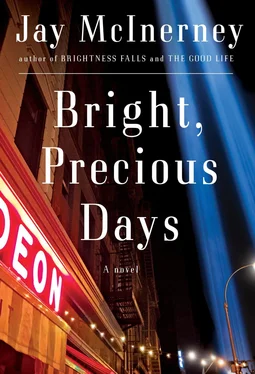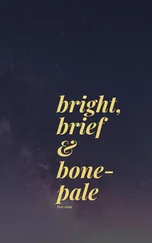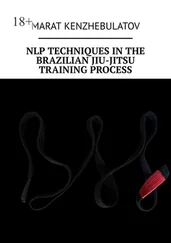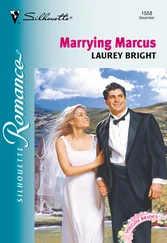“I don’t guess this was a real good hidin’ spot,” he said when Russell sat down beside him. His hair pointed in several directions and he had a greenish pallor. The kitschy bar and grill with its Elvis memorabilia had become Jack’s home away from home in the city. It was his kind of joke: a real redneck in a fake redneck bar.
“You’ve done better, certainly.”
“I don’t think I can do this.”
“Sure you can.”
“I can’t get up and read my stories to a bunch of smart-ass New Yorkers.”
“Just look at it this way — most of the characters in your stories could kick their asses all the way to New Jersey.”
“Most of my characters are dumb crackers.”
“I wouldn’t call them dumb. They actually seem very savvy to me. If they were competing on Survivor, these New Yorkers wouldn’t stand a chance. They’d get kicked off the island in a heartbeat by your boys and girls. I’ll tell you a secret about smart-ass New Yorkers; ninety percent of them are former hicks who landed here utterly clueless after being the least popular kids in their high schools. The popular ones stayed back home, where they were wanted.”
“Just fuckin’ shoot me now.”
“Have another drink.”
“Don’t mind if I do.”
After another vodka, he seemed slightly less terrified.
“What are you going to read?”
“I have no fuckin’ idea.”
“Well, let’s think of something. Read the story you think is least likely to go over with this audience, and I bet you it’ll bring the house down.”
“I need some blow,” he said.
“Well, sorry, but I used up my last gram about twenty years ago.”
“Somebody’s comin’,” he said. “I have to wait.”
“A dealer?”
“A friend,” Jack said.
Russell pointed out that the reading started in ten minutes, but Jack wouldn’t budge until his friend arrived — a petite, voluptuous brunette with a gold nose ring who introduced herself as Cara.
“You got the stuff?” Jack asked.
“Come on,” she said, walking off toward the bathrooms.
Russell finally got them both into a taxi ten minutes after the reading was supposed to have started, somewhat fretful about Jack’s condition. He seemed just as drunk as before, only now he was twitching and chewing his lower lip. As they approached the bookstore on Tenth Avenue, they could see a milling throng on the sidewalk. The chatter of the crowd subsided as Jack emerged from the cab and shuffled through the gauntlet, Russell guiding him with a hand on his shoulder, apologizing as they pushed forward into the mob. “Got the reader here. Sorry, coming through. Excuse us….”
There probably weren’t more than a hundred people, but the place was packed to capacity, half seated in the chairs that had been set out and the rest standing, crowding the floor as the stragglers from outside struggled to get in. Astrid Kladstrup, overdressed for the occasion in a tiny black cocktail dress, waved to him from the back. He couldn’t believe it had been a year since he’d taken the keeper of Jeff’s Web site to lunch, or that he’d managed to resist her.
It was as good a crowd as Russell had ever seen here, and the atmosphere was charged with anticipation. The audience seemed convinced that they were in on something special, pleased with themselves for being here and anxious to have their expectations fulfilled. Russell wished he could tell Jack that the crowd was with him — that they wanted him to be someone they could say later they’d seen at the very beginning, that they’d follow him almost anywhere tonight as long as it was novel — but Jack was enduring the pleasantries of the owner and the staff. He looked as if he’d just crawled out of bed after sleeping off a terrible bender — his hair an unruly mess, his face drawn and gaunt.
He was fucking perfect.
When he started to read, the crowd collectively leaned forward; Jack was mumbling, and speaking so fast that it was difficult at first to make out the words, even for Russell, but a helpful staffer adjusted the mike and a hush fell as he started again. He was still mumbling, and occasionally slurring, but it was just possible to make out most of what he was saying.
He read “Family First,” a story about a young woman from a small Tennessee town who is sexually abused by her father and runs away to Memphis, where she eventually ends up working for an escort service. Years later she gets an outcall for a trick at a motel and arrives, only to find her father waiting there, and she shoots him with the pearl-handled revolver she stole from his truck the night she ran away. We have already learned that this is a girl who knows how to hit what she shoots at, and though she wants to kill him, and we want her to, she shoots him through the thigh and walks away, leaving the pistol behind on the bedside table.
The climactic action all happened in less than a page — what had once been three pages describing her thoughts and feelings, until Russell had cut and pared much of it away, saving the essentials and exposing, as he saw it, the hard, adamantine core. It was all there, but Jack had told too much in his original draft, hadn’t trusted his material, when, in fact, he’d already set it all up and provided everything the reader needed to know. And Russell, as he saw it, had shown him what was already there, and how to overcome his fear of not making his case explicit, and had cited the eternal cliché that less is more. He didn’t want credit, but he knew he was right, and he was grateful that this incredible material had come to him so that he could help to make it what it wanted to be. Even the draft he’d first read, cluttered with exposition, had had that vertiginous liftoff that he always wished for at the end of a story, the simultaneous feeling of rising out of the mundane comprehension of our mortal experience and the sensation as we rise of looking down into the abyss, an intimation of redemption — or damnation — that was all the more powerful for being left almost unspoken, and now the audience felt it, too; the combination of the story itself and how clearly the crowd was validating his assessment of its worth made Russell’s eyes well with tears, as did, perhaps, the knowledge of how hard-earned Jack’s hard-boiled wisdom truly was: the absent father and abusive stepfather, juvenile detention, the fast-food jobs and bar fights. It was all there in the stories. It was all his.
The applause was prolonged and clamorous, and many who were sitting rose to their feet. Russell knew it was a great story — no one could have convinced him otherwise — but it was exhilarating to hear Jack read it and to see the response, almost unmediated by preconceptions. He was actually a powerful performer, his obvious reluctance lending weight to the reading. The audience knew they’d heard something special. The Times had prepared them to be impressed, but it hadn’t necessarily prepared them to be physically moved.
As for Jack, he looked stunned, as if he didn’t know what to make of all this. He nodded and blinked, waved once and then retreated to the signing table, where his new fans pressed in on him.
Russell chatted with the staff and examined the shelves while Jack signed books, finally extracting him after more than an hour. The young drug courier, Cara, followed him out to the street. Astrid Kladstrup, who’d been smoking on the sidewalk, sidled over to join their group. “That was amazing,” she said to Jack, who merely grunted as a taxi pulled to a stop beside them. Clearly a city girl, Cara opened the cab door and thrust Jack into the backseat, sliding in beside him and pulling the door closed. But the maneuver failed to discourage Astrid, who slipped around the back to the opposite door of the cab and inserted herself on the other side of Jack, forcing Russell to claim the front seat.
Читать дальше












